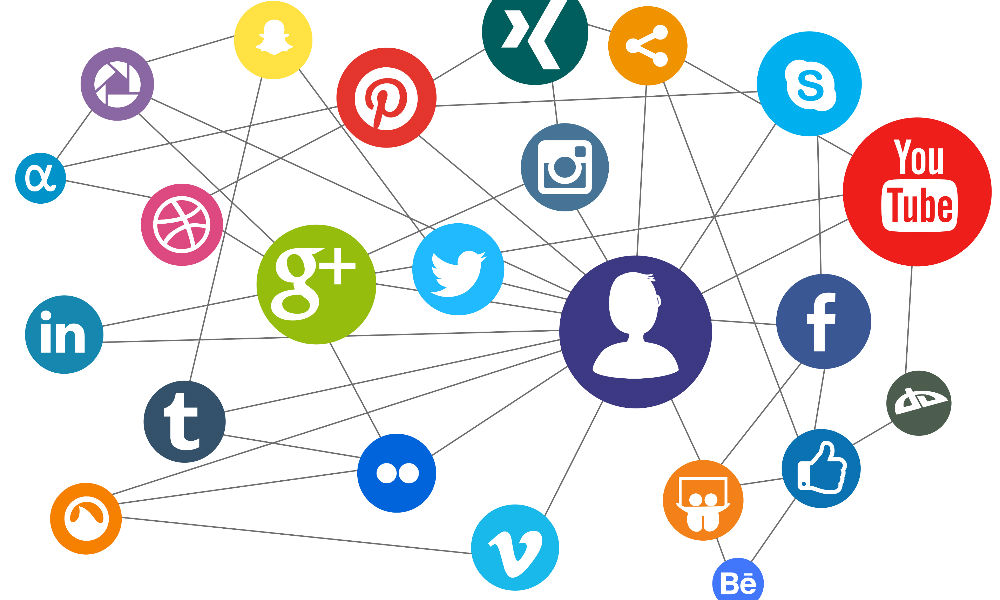The mediasphere can be defined as "the collective ecology of the world's media including newspapers, journals, television, radio, books, novels, advertising, press releases, publicity and the blogosphere; any and all media both broadcast and published." This was the topic of one group's presentations for EOTO. Within the media sphere, each team member dove into a concept including echo chambers, whistleblowers, online influencers, mainstream media, citizen journalism, and alternative media.
Echo Chambers
Echo chambers are environments where people only encounter information or opinions that reflect their own beliefs. Echo chambers can create misinformation distorting an individual's perspective making it difficult for them to consider opposing viewpoints. This increases division limiting exposure to diverse perspectives. These echo chambers can happen anywhere information is exchanged whether online or in real life however the internet has made echo chambers grow and have made it easier to fall into. Some echo chamber examples and how to recognize an echo chamber include only receiving one perspective, the viewpoint being supported by incomplete evidence, and facts being ignored when going against the viewpoint. The
Whistleblowers
Whistleblowers are defined by the National Whistleblower Center as "someone who reports waste, fraud, abuse, corruption, or dangers to public health and safety to someone who is in the position to rectify the wrongdoing" which became known in 1970. These whistleblowers typically, not always, work inside the organization of the wrongdoing. They play essential roles in leading to significant changes within our society.
Edward Snowden is believed to be America's most consequential whistleblower in history for handing over materials from one of the world's most secretive organizations, the NSA. Along with his first set of documents he handed over, he left a note stating "I understand that I will be made to suffer for my actions," but "I will be satisfied if the federation of secret law, unethical pardon and irresistible executive powers that rule the world that I love are revealed even for an instant."
Online Influencer
Online influencers are people who have large followings on social media. Influencers originated in the mid-2000s on platforms like YouTube, Instagram, and TikTok. They post content their viewers can relate to growing their following and establishing an influence among their viewers. They have marketing power allowing for brand partnerships and a reach to engage audience through personal connections.With their influence, they shape trends and consumer decisions in various industries. These individuals can be very beneficial acting as role models to viewers. However, they can also cause insecurities among followers and alter perceptions of reality as influencers typically show their best selves resulting in false comparisons.
Mainstream Media
Mainstream Media are mass communication channels that reach a wide audience. Some examples of this are CNN, BBC, and the New York Times. One positive of mainstream media is access to information allowing society to be informed on current events. Another positive is awareness raised by this media highlights important social issues. Along with the positives, some negatives of mainstream media is media bias as it influences perspectives creating echo chambers, and sensationalism which focuses on clickbait over meaningful content.
Mainstream media has some diverse impacts including a generational divide meaning consumption of media changes based on old and young individuals. There is also an economic divide acknowledging differences is access to information and impacts on identity shaping individual and societal beliefs.
Citizen Journalism
Citizen journalism analyses news and information by the general public. Forms of this include pamphlets, radio, blogs, social media, and beyond. Citizen journalist's key characteristics include easy accessibility, speed, diversity in media, and community engagement on various topics. These individuals have the opportunity to share voices that often aren't heard broadening the public's access to information from various viewpoints.
Alternative Media
Alternative media is media sources that differ from established media types such as mainstream or mass media in terms of production, content, and or distribution. They are independently owned and get funding through nonprofits with financial freedom. It allows for more freedom leading to integrity and less bias as there is no one controlling content. This is why many people refer to alternative media as independent media indicating its independence from large media corporations.









No comments:
Post a Comment